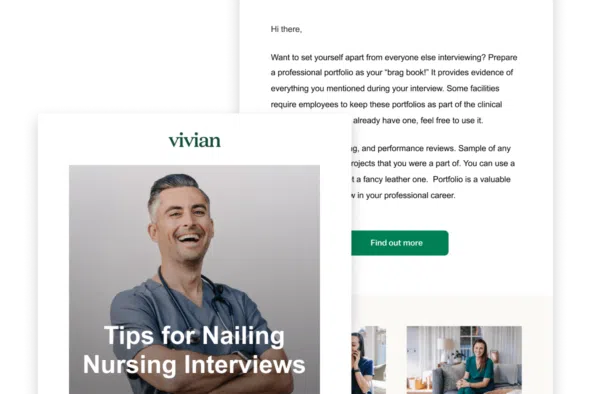With the healthcare industry expanding tremendously, so is the job outlook for registered nurses (RNs) and licensed practical nurses (LPNs), also called licensed vocational nurses in California and Texas. The U.S. Bureau of Labor Statistics predicts a 5% job growth for LPNs and 6% for RNs between 2022 and 2032. RNs have one of the fastest-growing healthcare careers and several career advancement opportunities, so many LPNs enroll in LPN to RN programs to pursue an RN degree to boost their careers and paychecks. Learn more about the benefits of becoming an RN, key role differences and standard LPN-to-RN bridge programs in our overview below. We also cover potential challenges and misconceptions to help you determine if this career track is right for you.
LPN vs. RN Role
The LPN vs. RN roles share some of the same responsibilities, but RNs may delegate some of these responsibilities, such as assisting with activities of daily living (ADLs), to an LPN or certified nursing assistant (CNA). Other key duties distinguish the RN from the LPN role. We broke down some typical responsibilities within each position in the table below.
| Responsibility | Licensed Practical Nurse |
Registered Nurse |
| Assist with ADLs | Yes |
Yes |
| Complete vital signs | Yes |
Yes |
| Perform trach and wound care | Yes |
Yes |
| Administer medications | Yes* |
Yes |
| Perform assessments | Yes, limited* |
Yes |
| Insert intravenous (IV) catheters | Yes, limited* |
Yes |
| Administer IV medications or blood transfusions | No |
Yes |
| Triage patients | No |
Yes |
| Create patient care plans | No |
Yes |
| Provide patient education | No |
Yes |
*May differ depending on state scope of practice.
Benefits of Becoming an RN
- Additional Responsibilities: RNs complete more complex nursing duties than LPNs, with added responsibilities. Their additional training and knowledge give registered nurses a more in-depth understanding of the complexities of patient care and the healthcare industry.
- Diversified Specialties: LPNs may be limited to certain specialties, such as home health or hospice, due to their scope of practice. Becoming an RN vastly expands options for top-paying nursing specialties, including labor and delivery, oncology and intensive care.
- Expanded Practice Settings: RNs practice in an array of healthcare settings, including hospitals, physician offices and outpatient surgery centers. Licensed practical nurses may be limited to non-acute care settings, such as rehabilitation centers and nursing homes, as more hospitals opt to hire RNs over LPNs due to their limited scope of practice. The preference for RNs and phasing out of LPNs in certain healthcare facilities could lead to fewer work settings.
- Higher Earning Potential: Salary data from Vivian Health on December 20, 2023, indicated the average staff LPN salary was $31.07 per hour, while the average staff RN salary was $44.16 per hour. This data reflects the higher earning potential of RNs, likely due to their expanded scope.
- Improved Autonomy: RNs have an expanded scope and added responsibilities, so their roles provide more autonomy than LPNs.
- Heightened Career Advancement Opportunities: RNs often receive promotions into nursing leadership and administrative roles that aren’t open to LPNs.
- More Job Opportunities: On December 20, 2023, Vivian had over 5,800 RN staff jobs posted and just over 300 LPN staff opportunities. Although these figures can fluctuate, the availability of RN career opportunities is typically much higher compared to LPNs.
Overview of LPN-to-RN Programs
LPN-to-RN programs prepare students for RN practice and to pass the National Council Licensure Examination for Registered Nurses (NCLEX-RN). Applications to bridge programs have several prerequisites that vary by institution but typically include:
- Active LPN license
- At least 6 months of LPN experience
- Completion of prerequisite classes
- Current Basic Life Support Certification
- Previous school transcripts, usually with a minimum 3.0 cumulative grade point average
- Prior clinical rotation experiences and number of hours
- Proof of graduation from an accredited LPN program
- Test of Essential Academic Skills (TEAS) score taken within last 2 years
LPN-to-RN bridge programs range from one to four years, with the length dependent on many factors. Students can enroll part-time or full-time and opt for traditional or accelerated tracks. Accelerated LPN-to-RN programs are similar to accelerated LPN programs, where students have condensed coursework and less time to graduate. Also, parallel to in-person vs. online LPN programs, LPN-to-RN bridge programs offer in-person, online and hybrid options. Due to the flexibility of the various program options, many students can continue to work while earning a higher degree, especially those who choose online or part-time options.
Another factor contributing to program duration is the degree you earn. Students may obtain an Associate of Science in Nursing (ASN) or a Bachelor of Science in Nursing (BSN). Each option has pros and cons that vary based on your career goals. Those who graduate with an ASN can finish their programs sooner because they have less required coursework than students earning their BSN. Alternately, students who graduate with a BSN have a higher earning potential and more career advancement opportunities since their coursework includes additional nursing leadership, theory and ethics courses. ASN-prepared and BSN-prepared nurses can both take the NCLEX-RN and apply for state RN licensure.
Additionally, the coursework in LPN-to-RN bridge programs varies depending on the institution’s requirements and the degree earned. Students must complete core subjects and upper-level nursing coursework, which may include:
- Adult Health Nursing
- Anatomy and Physiology
- Community Health Nursing
- Intro to Humanities
- Intro to Psychology
- Mental Health Nursing
- Microbiology
- Nursing Research
- Pharmacology
- Transitioning to Professional Practice
- Women’s Health Nursing
Many of the courses listed above may appear similar to LPN program coursework. However, students must take these classes as they’re learning RN responsibilities instead of LPN scope and duties.
Overcoming Challenges
LPNs may have reservations about earning an RN degree based on various misconceptions. Some common ones include:
- Career Change: While an RN has additional responsibilities, this doesn’t translate to a complete career change. As an LPN, you already have basic nursing knowledge and skills to give you a leg up as a healthcare professional. Think of the new RN role as expanding your previous skills and knowledge, not an entirely new career track.
- Lack of Support: Many LPNs assume there won’t be support when transitioning to the RN role after graduation. However, many healthcare systems have RN residencies where new graduate nurses shadow an experienced nurse to gain hands-on experience and have additional education curricula pertaining to their specialty.
- Lack of Work-Life Balance: Some people may be concerned about work-life balance since they must juggle personal, school and work when enrolled in an LPN-to-RN program. However, many program options allow you to choose the track that best suits your lifestyle and desired balance.
- Long-Time Commitment: If you opt for a full-time accelerated LPN-to-RN program, you can graduate in as little as one year with an ASN or three years with a BSN, shortening your commitment. While it takes part-time students longer to earn their degree, it does provide more schedule flexibility.
- Greater Workload: Most students assume RNs complete more work due to their additional responsibilities compared to LPNs, but this isn’t entirely true. As an RN, your primary focus is patient care, but you may delegate specific tasks to others. LPNs are often assigned the more basic patient care activities, with activities limited by what the RN delegates, so essentially, the work is comparable.
Consider these strategies to help you overcome some common challenges:
- Consider a new grad RN residency: Transitioning to the RN role can be stressful, especially for a new graduate. Consider applying for a residency that helps make the transition to practicing as an RN smoother.
- Find a mentor: Many nursing programs have mentorships that pair new nursing students with juniors or seniors. A nurse mentor can guide you through what to expect in the program and alleviate stress about coursework and expectations.
- Have a support system: Ensure you have a strong support system, as many LPN-to-RN bridge programs have an intense schedule. Your support system should include those that support your physical and mental health. Consider utilizing outside resources, like childcare or counseling, when necessary.
- Make time for self-care: Practicing self-care can help ease stress and anxiety. Self-care activities don’t have to be something expensive. They may be simple things like taking a bath, reading or exercising.
- Practice time management: Most LPN-to-RN students have a job while in school and must balance it with their personal lives. Develop better time management skills by planning activities at the beginning of each week, including work, time to study and personal or family responsibilities.
RELATED: Understanding Nurse Fellowships
Financial Considerations and Scholarships
Some students may have concerns about the cost of LPN-to-RN programs. Tuition varies per institution due to many factors, including whether it’s a private or public school, an online or in-person course or you’re an in-state or out-of-state student. The degree earned also has a significant bearing, with some shorter ASN programs costing around $2,000, while BSN programs can cost over $60,000.
Luckily, you have numerous financial options to help cover your educational expenses. Most educational institutions provide financial aid options, like student loans and grants, and some government agencies offer financial assistance to students who earn below a certain income. Many nursing schools and organizations also have various scholarship opportunities. Additionally, since healthcare institutions tend to hire RNs instead of LPNs, they may offer tuition reimbursement for LPNs who earn their RN degrees.
RELATED: Paying for Nursing School: A Comprehensive Guide to Financial Aid & Scholarships
If you’re considering an LPN-to-RN bridge program, review your finances and budget accordingly for added expenses like books and nursing supplies. If you’re a full-time student, you likely won’t be able to work during school, so adjust your budget as needed.
Becoming a registered nurse is a rewarding career choice that provides many professional growth opportunities. You’ll earn a higher salary and have a brighter job outlook while improving patient health outcomes. LPN-to-RN bridge programs offer an excellent opportunity for advancement, and you can overcome many of these potential challenges by using the strategies discussed.
Once you finish nursing school, it’s time to find the ideal job for your career goals. Explore these tips for improving your nursing job search to get started on the right path.






